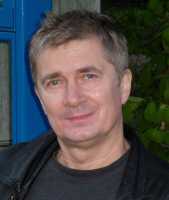04 Dec How Does PD-L1 Blockade Impact HIV Immune Response?

Dr. Meyerhans
MedicalResearch.com Interview with:
Andreas Meyerhans, PhD
ICREA Research Professor at the University Pompeu Fabra
Infection Biology Group
Department of Experimental and Health Sciences
Universitat Pompeu Fabra
Barcelona Spain
Medical Research: What is the background for this study? What are the main findings?
Dr. Meyerhans: In brief, chronic HIV infections lead to a dampening of HIV-specific killer cells. This phenomenon is named exhaustion and is mediated by inhibitory proteins, such as PD-1, on the cell surface. A consequence of exhaustion is a reduction of the immune control over virus expansion.
We have studied the effect of blocking the negative signaling from the inhibitory proteins by means of PD-1/PD-L1 pathway inhibition on effector and regulatory T cells (Treg). We found that one can augment antiviral immune control only when the virus load was well controlled in the HIV-infected individuals i.e. by antiviral drugs. In that case, PD-1/PD-L1 pathway blockage led to an expansion of anti-HIV killer cells over Treg cells. This latter are suppressive white blood cells also subject to the same inhibitory pathway regulation. In contrast, when blood cells from viremic HIV-infected individuals were analyzed, Treg cells expanded efficiently and thus reduced the effector to regulatory T cell ratio that controls HIV. Taken together, our data point to Treg cells as an important component in the outcome of PD-1/PD-L1 pathway inhibitor therapies and suggest a net gain in anti-HIV immune responses only when the HIV loads are well controlled during the administration of these novel compounds.
Medical Research: What should clinicians and patients take away from your report?
Response: Immune checkpoint inhibitors that, for example, target the PD-1/PD-L1 signaling pathway are of increasing interest to treat diverse chronic infections and cancers. As both, effector and regulatory T cells are regulated by this pathway, conditions to achieve a net gain of immune responses should be carefully defined. Our ex-vivo study with blood cells from HIV-infected individuals at different disease stages and viral loads suggests that such therapies should be administered only when HIV is completely controlled i.e. by antiretroviral drugs.
Medical Research: What recommendations do you have for future research as a result of this study?
Response: In our work we used blood cells from patients and studied their features in cell culture. Our results predict that the virus load is one critical parameter for the extent to which immune effector functions can be restored. It is now important to establish in clinical trials with immune checkpoint inhibitors
(i) whether our ex vivo measures are good predictors for treatment outcome,
(ii) whether these drugs show a long-term patient benefit in modifying the virus/immune system balance towards better virus control even without antiviral drugs, and
(iii) whether their combination with therapeutic vaccines result in enhanced and better immune responses.
Citation:
Published: December 3, 2015
DOI: 10.1371/journal.ppat.1005270
[wysija_form id=”5″]
Dr. Andreas Meyerhans (2015). How Does PD-L1 Blockade Impact HIV Immune Response?
Last Updated on December 4, 2015 by Marie Benz MD FAAD
